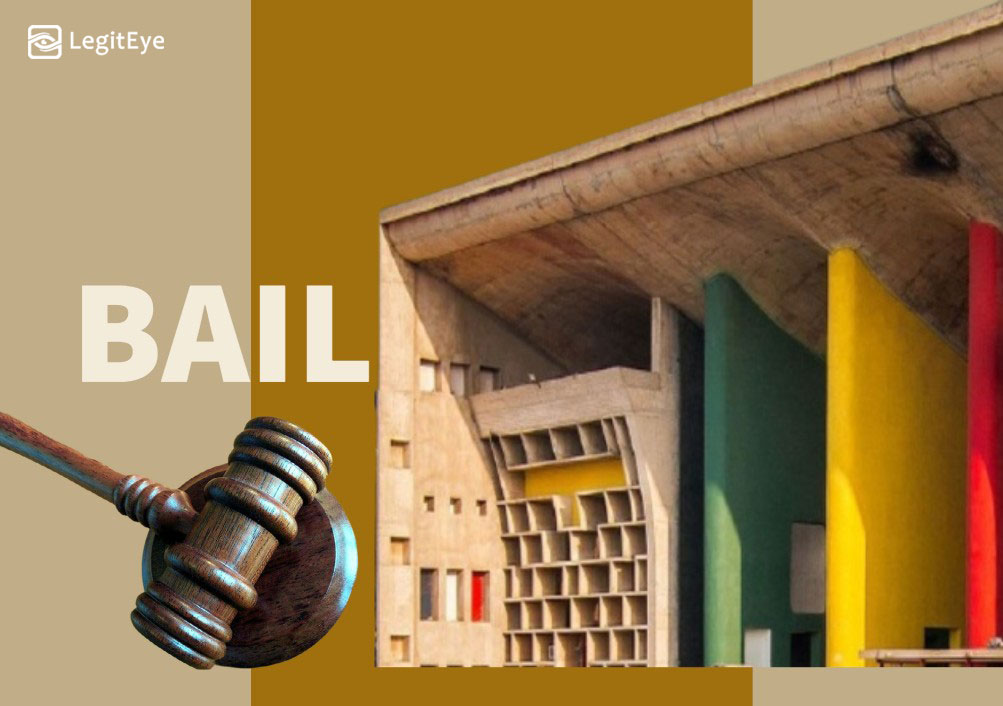P&H HC dismisses Revision Petition relying on settled law that Order granting bail is interlocutory order against which no revision lies u/s 397(2) CrPC

Read Order: Lakhwinder Singh v. Lovepreet and Another
Monika Rahar
Chandigarh, March 9,2022: While dealing with a revision petition against the grant of regular bail to the accused by the lower court in a rape and POCSO Act case, the Punjab and Haryana High Court has dismissed the revision petition on the ground of maintainability.
The Bench of Justice Suvir Sehgal relied upon the law laid down by the Supreme Court which is to the effect that an order granting bail is an interlocutory order and no revision lies against the same.
In this case, the 15-year old daughter of the complainant was in a relationship with one of the accused, who established physical relations with her and make recorded her obscene videos. She was blackmailed with the video so recorded and was forced into giving the accused, gold ornaments of her family. Under the threat of her videos being made viral, she cave in and gave her mother’s ornaments to the accused. She also disclosed, to her parents that she was raped and a death threat was also given to her by the accused.
Resultantly, her father made a complaint which resulted in the registration of an FIR for offences punishable under Sections 66-E, 67-B of Information Technology Act, 2000, Sections 384, 506 of Indian Penal Code, 1860 and Section 6 of Protection of Children from Sexual Offences Act, 2012 (Section 17 of POCSO Act, Sections 201, 376(3), 34 IPC were added later on).
One of the accused persons was granted regular bail by the Lower Court and hence the High Court was approached with a revision petition.
On a specific query by the Court regarding maintainability, the petitioner’s counsel placed reliance upon a judgment of the Punjab and Haryana High Court in Bodh Raj v. State of Haryana 1993(3) RCR (Criminal) 720 to submit that the order granting bail is not an interlocutory order and a revision petition against the same is maintainable.
However, not expressing its agreement with the Counsel, the Court referred to the Supreme Court for interpretation of Section 397 (2) of the Code. The Top Court held in Amar Nath and others Vs. State of Haryana and another (1977) 4 SCC 137 that the term “interlocutory order” in Section 397(2) of the 1973 Code was used in a restricted sense and not in any broad and artistic sense. The Top Court added that it merely denotes orders of a purely interim or temporary nature that do not decide or touch the important rights or the liabilities of the parties. Any order which substantially affects the right of the accused, or decides certain rights of the parties cannot be said to be an interlocutory order so as to bar a revision to the High Court against that order, because that would be against the very object which formed the basis for insertion of this particular provision in Section 397 of the 1973 Code, said the Court.
It was further observed by the Apex Court that thus, orders summoning witnesses, adjourning cases, passing orders for bail, calling for reports and such other steps in aid of the pending proceeding, may no doubt amount to interlocutory orders against which no revision would lie under Section 397(2) of the 1973 Code.
Thus, in view of the position settled by the Apex Court, the instant revision petition was dismissed by the High Court for not being maintainable. However, the accused was given the liberty to take recourse to the remedy available to him, in accordance with the law.
Sign up for our weekly newsletter to stay up to date on our product, events featured blog, special offer and all of the exciting things that take place here at Legitquest.




Add a Comment